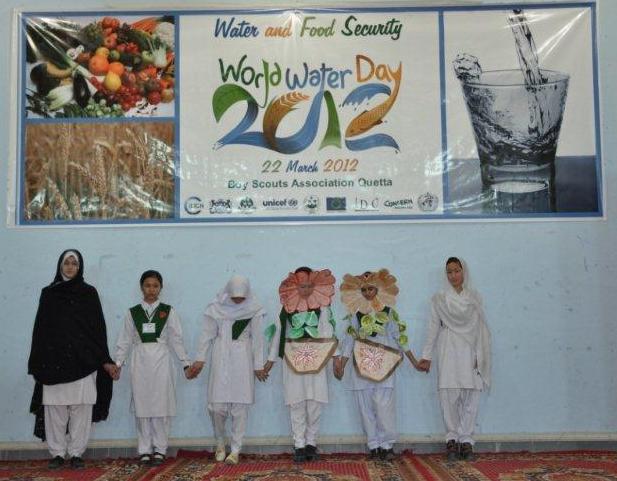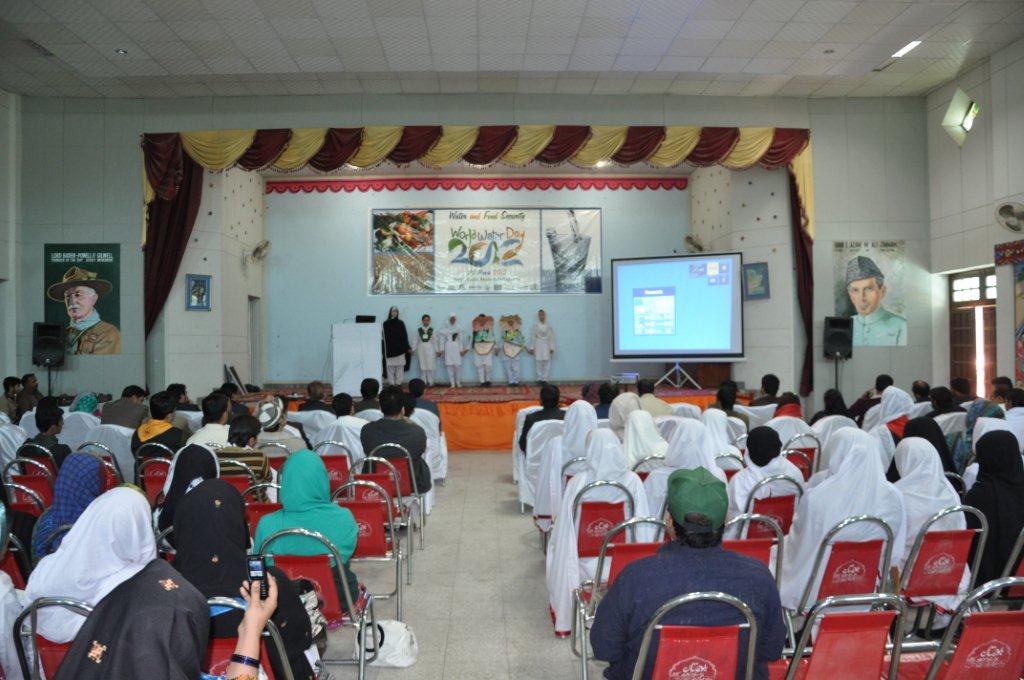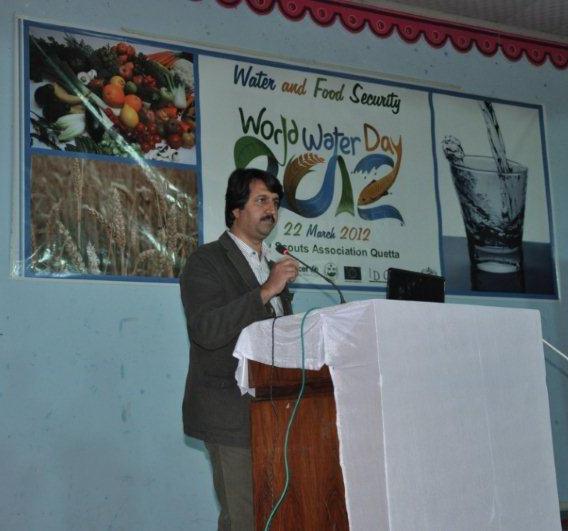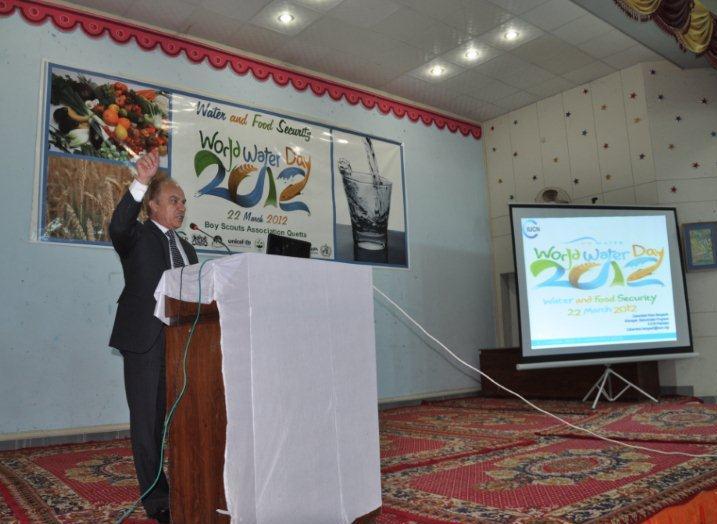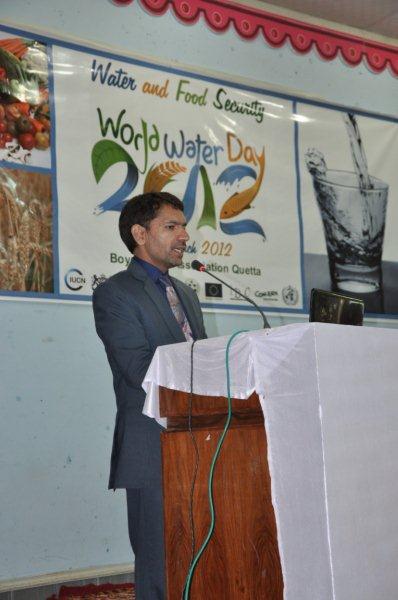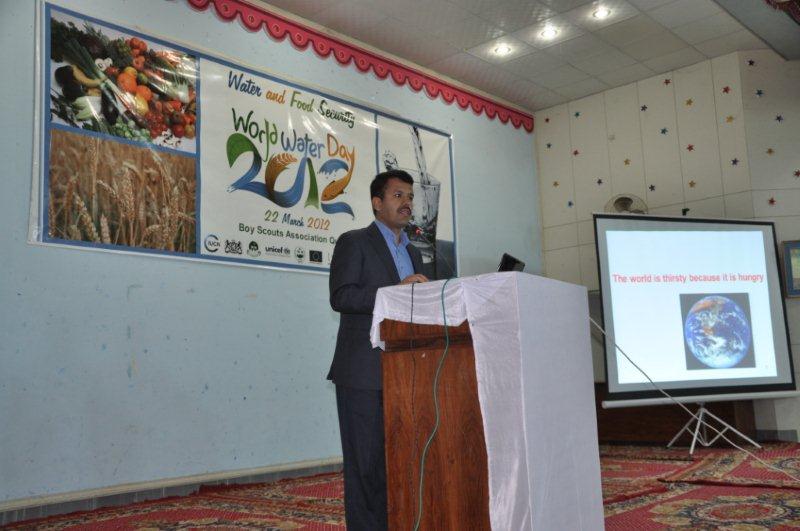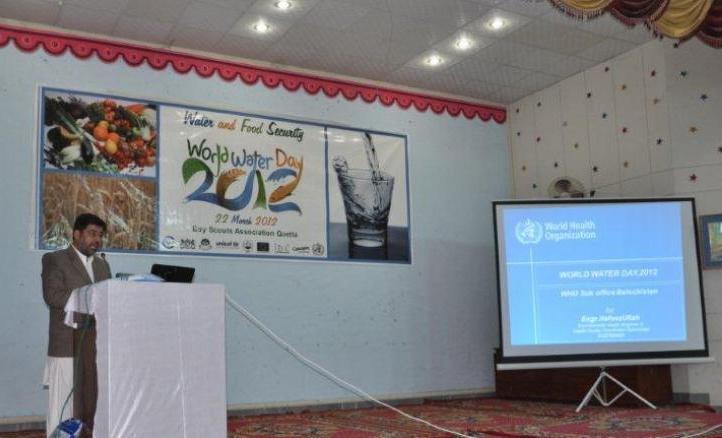Balochistan’s water crises may last until 2025 - Seminar on world Water Day "Water and Food Security"
Each year on 22nd March, World Water Day is celebrated to create awareness on freshwater. It was declared as an international day of importance at the 1992 United Nations Conference on Environment and Development (UNCED) in Rio de Janeiro. The United Nations General Assembly responded by designating March 22nd, 1993 as the first World Water Day.
This year’s theme for WWD was "Water and Food Security". In this connection, IUCN under its BPSD Programme along with UNICEF, Concern Pakistan, World Health Organisation, IDO and other partner organisations arranged a seminar at the Boy Scouts Association, Quetta where Balochistan based experts came together to share their ideas on crucial water-related issues.
Speakers at the seminar warned that Balochistan province would suffer from water storage crisis until 2025.
Welcome remarks were delivered by Mr. Nasim Panezai, Manager, Concern Balochistan, who gave an overview of the water situation in Balochistan.
The key note speaker, Mr. Arif Hussain Shah (Chief, Federal Projects P&D Department) gave a detailed presentation on water and food security in Balochistan. He mentioned that about 97% of water in Balochistan goes into growing food. He added that the shortage of water is not only hampering agricultural activities, but is also affecting the livestock. He suggested several practical ways to conserve water in Balochistan.
Mr. Zabardast Khan Bangash, Manager IUCN Balochistan Programme stated that Balochistan is facing water & food insecurity situation due to population growth, climate change and energy crisis. He highlighted the fact that between 2003-2011, it has worsened in more than half of the 30 districts in Balochistan because rainwater is not being preserved in the region and swept away into the sea. He also mentioned that karez water in Balochistan is used more in the winter season, but due to lack of maintenance of the karezes, it is often wasted.
Mr Zahoor Bazai, Director Training, University of Balochistan quoted a research done in 1990, which mentioned the reduction of water in Balochistan from 8000 cusec per capita to 500 cusec per capita. He added that 50% population of Pakistan is facing malnutrition. He said we are also using virtual water, which makes up our daily food.
On this occasion, students from the Girls Guide Association presented a tableau to highlight preservation and careful utilisation of water.
In his closing remarks, Mr. Hafeezuulh Baloch, Cluster Coordinator, World Health Organisation stressed on the need to bring behavioral changes in society, adding that illegal use of water in the province is also a reason for its fast-depleting resources.
Towards the end of the seminar, gifts were distributed amongst the tableau participants and presentators.
For more information or to set up interviews, please contact:
Zabardast Khan Bangash, Manager IUCN Balochistan Programme,
IUCN (International Union for Conservation of Nature)
Quetta Phone: +92 8128240450-2, Fax: +92 812820706
Email: zabardast.bangash@iucn.org
